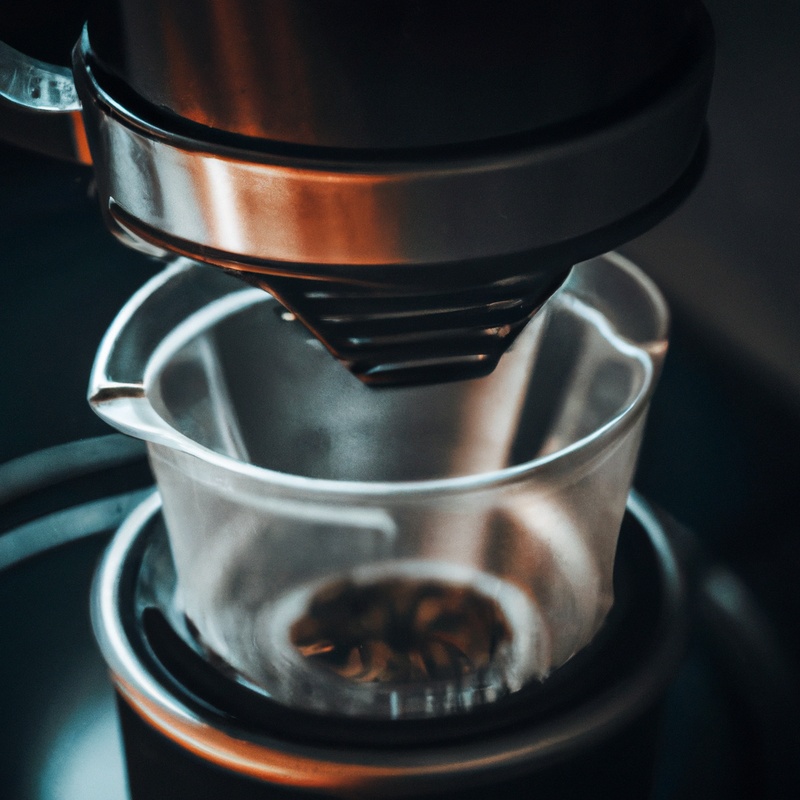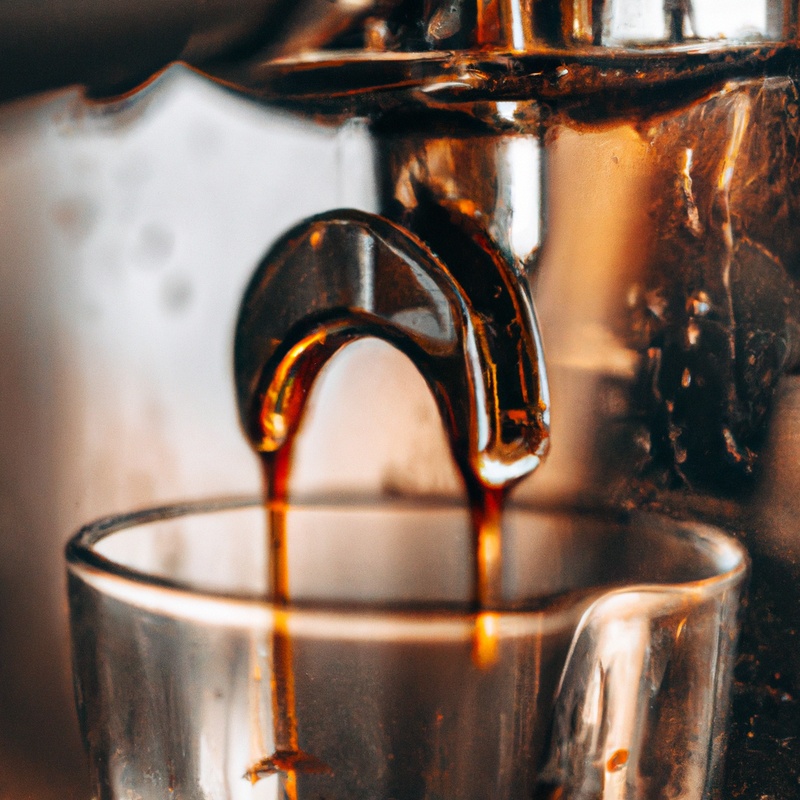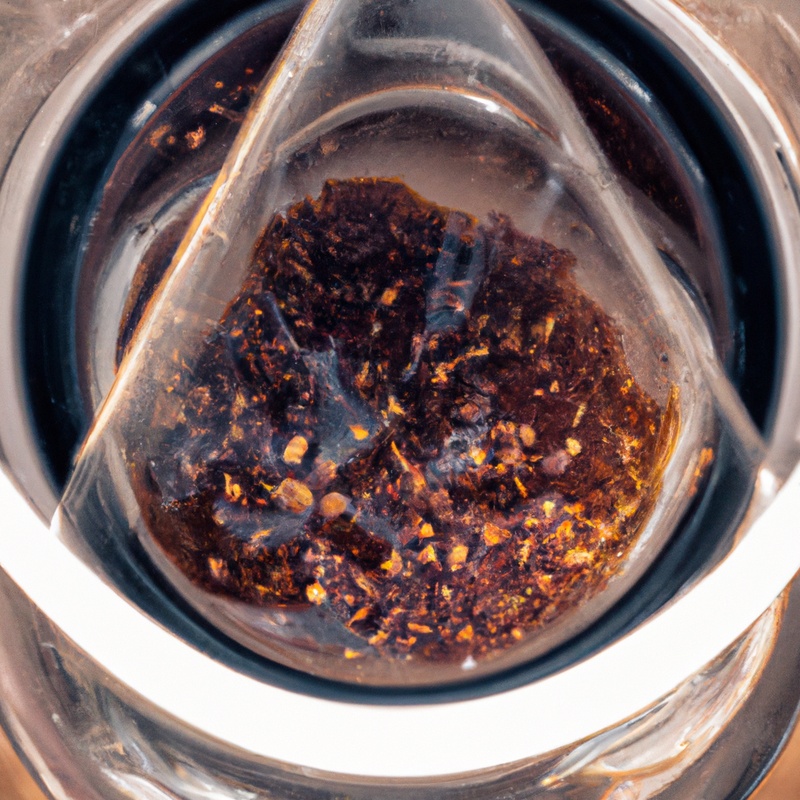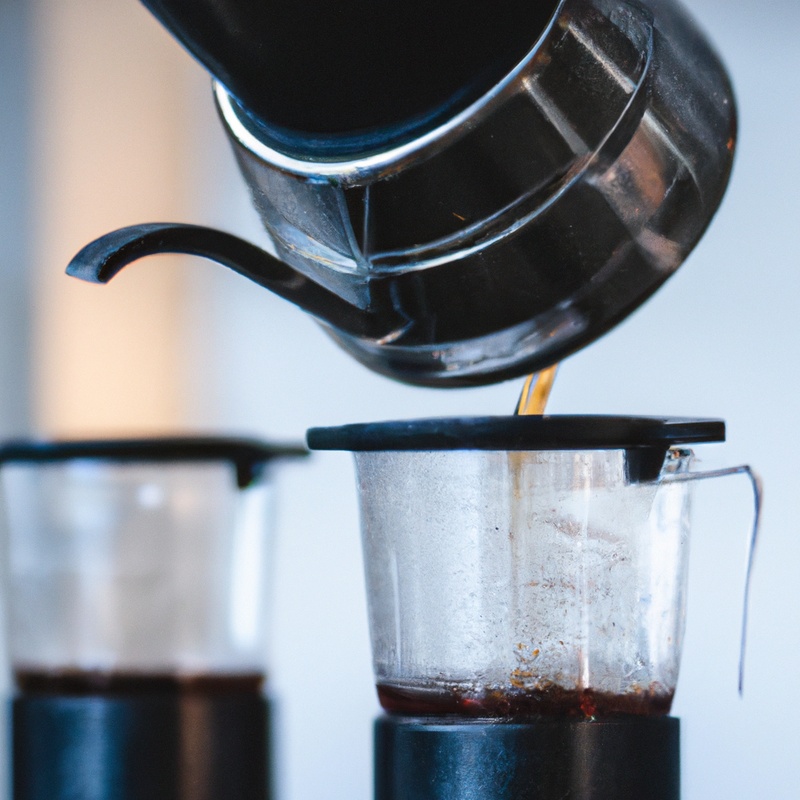Key Takeaways:
- The ideal temperature for brewing coffee is between 195°F and 205°F.
- Brewing coffee at lower temperatures can result in under-extracted flavors.
- Brewing coffee at higher temperatures can lead to over-extracted and bitter flavors.
- The temperature of the water used for brewing coffee significantly affects its taste and aroma.
Are you tired of sipping on mediocre coffee? Wondering why your homemade brew just doesn’t match up to that perfect cup you get from your favorite café?
Well, my friend, I’ve got some piping hot (pun intended) advice for you.
The temperature at which you brew your coffee can make all the difference in the world. It’s not just about hot or cold, but finding that sweet spot that unlocks the flavors and aromas trapped within those little beans.
So, grab a mug and let’s dive into the science and secrets behind brewing coffee at the right temperature.
| Temperature | Effects |
|---|---|
| 90-96°C (195-205°F) | Optimal brewing temperature. Extracts the full range of flavors and compounds from the coffee grounds resulting in a well-balanced and flavorful cup of coffee. |
| Above 96°C (205°F) | High brewing temperature. May result in over-extraction, leading to a bitter and burnt taste. |
| Below 90°C (195°F) | Low brewing temperature. May under-extract the coffee, resulting in a weak and sour-tasting cup. |
The Importance of Brewing Coffee at the Right Temperature
Brewing coffee at the right temperature is essential for achieving a delicious and well-balanced cup.
Factors That Affect the Brewing Temperature
The brewing temperature of coffee can be influenced by several factors. The main factors that affect the brewing temperature include the type of coffee beans being used, the grind size of the coffee, the brewing method, and the equipment being used.
Different coffee beans have different optimal brewing temperatures, and using the right temperature can bring out the best flavors in the coffee.
The grind size also plays a role, as finer grinds may require slightly lower temperatures to prevent over-extraction. The brewing method and equipment can also impact the brewing temperature, with some methods allowing more control over temperature than others.
It’s important to pay attention to these factors to ensure a great cup of coffee.

The Optimal Temperature for Brewing Coffee
The optimal temperature for brewing coffee is between 195°F (90.5°C) and 205°F (96°C). This temperature range allows for proper extraction of flavors and aroma from the coffee beans without over-extracting or scorching them.
Too low of a temperature will result in under-extracted coffee, while too high of a temperature can lead to a bitter taste.
It’s important to maintain this temperature consistently throughout the brewing process to achieve a delicious cup of coffee.

Brewing Coffee with Hot Water
To brew coffee with hot water, the ideal temperature range is between 195°F and 205°F (90°C to 96°C). This temperature range allows for optimal extraction of the coffee’s flavors and ensures a well-balanced cup.
Avoid using boiling water, as it can result in over-extraction and a bitter taste.
Using a thermometer or an electric kettle with temperature control can help you achieve the perfect brewing temperature. Enjoy your delicious cup of coffee!
Brewing Coffee with Cold Water
Brewing coffee with cold water can result in a smoother, less acidic cup of joe. Cold brew coffee is made by steeping coffee grounds in cold water for an extended period of time, usually overnight.
This method extracts the flavors from the coffee beans without the bitterness that can come with hot water brewing.
The slow extraction process also allows for a more nuanced and complex flavor profile. So, give cold water brewing a try for a unique and refreshing coffee experience!
Adjusting Brewing Temperature for Different Coffee Methods
When it comes to brewing coffee, the temperature plays a crucial role in determining the taste and quality of your cup. Different coffee methods require different brewing temperatures to bring out the best flavors.
Here’s a quick breakdown:
- Drip Coffee: For drip coffee, aim for a brewing temperature of around 195°F to 205°F (90°C to 96°C. This temperature range allows for optimal extraction and the release of delicious coffee flavors.
- French Press: French press coffee requires a slightly lower brewing temperature of around 195°F (90°C. This lower temperature helps in preserving the delicate oils and flavors of the coffee grounds.
- Pour Over: When doing a pour-over brew, a temperature range of 195°F to 205°F (90°C to 96°C works well. It ensures a balanced extraction and brings out the nuanced flavors of the coffee.
- Espresso: For espresso, the brewing temperature is higher, around 195°F to 205°F (90°C to 96°C. This temperature range allows for quick extraction and creates the characteristic rich and bold flavor of espresso.
Remember, these are general guidelines, and your personal preference may vary. Adjusting the brewing temperature can be a fun experiment to find the perfect cup of coffee that suits your taste buds.
So go ahead, grab your favorite coffee brewing method, and start experimenting with different temperatures!
How to Measure the Temperature for Brewing Coffee
To measure the temperature for brewing coffee, you can use a thermometer, an electric kettle with temperature control, a variable temperature coffee maker, or a coffee brewing app.
Using a Thermometer
Using a thermometer is an effective way to measure the temperature when brewing coffee. Simply insert the thermometer into the coffee for an accurate reading.
This allows you to ensure that the water temperature falls within the ideal range for brewing coffee, which is typically between 195°F and 205°F (90°C and 96°C).
By using a thermometer, you can achieve the perfect temperature for a flavorful and well-balanced cup of coffee.

Using an Electric Kettle with Temperature Control
An electric kettle with temperature control is a handy tool for brewing coffee.
It allows you to heat water to the exact temperature you need for a perfect cup.
Simply pour water into the kettle, set the desired temperature, and let it heat up.
Some kettles even have presets for different types of coffee brewing methods.
With this convenient tool, you can achieve optimal water temperature for extracting the best flavors from your coffee grounds.
Cheers to a delicious cup of coffee!
Using a Variable Temperature Coffee Maker
Using a variable temperature coffee maker is a great way to ensure that your coffee is brewed at the perfect temperature every time. These coffee makers allow you to adjust the temperature to your preferred brewing level, whether it’s a lower temperature for lighter roasts or a higher temperature for darker roasts.
With the ability to customize the temperature, you can enjoy a perfectly brewed cup of coffee that suits your taste preferences.
Using a Coffee Brewing App
Using a coffee brewing app can greatly enhance your brewing experience.
These apps provide step-by-step instructions on how to brew the perfect cup of coffee.
They also offer timers to ensure you brew your coffee for the optimal amount of time.
Additionally, coffee brewing apps often have a temperature guide, so you can easily measure the ideal temperature for brewing your coffee.
Some apps even provide personalized recommendations based on your taste preferences.
Overall, using a coffee brewing app takes the guesswork out of brewing and helps you achieve consistent and delicious results every time.
Frequently Asked Questions about Brewing Temperature
Can I use boiling water to brew coffee?
Using boiling water to brew coffee is not recommended.
Boiling water can scorch the coffee grounds, resulting in a bitter and over-extracted taste.
It’s better to brew coffee with water that is slightly below boiling, usually between 195-205°F (90-96°C).
This temperature allows for proper extraction and a well-balanced flavor.
So, resist the temptation to use boiling water and opt for the recommended temperature range for a delicious cup of coffee.
Can I use cold water to brew coffee?
Yes, you can use cold water to brew coffee, but it may affect the taste of your coffee. When you use cold water, it takes longer for the coffee to extract, resulting in a weaker and less flavorful cup.
For optimal flavor, it is recommended to use hot water (around 195-205°F or 90-96°C) as it helps to extract the desired flavors and aromas from the coffee grounds more efficiently.
However, if you prefer a milder and less intense cup, using cold water can be an option. Keep in mind that the brewing time will likely need to be extended to compensate for the lower water temperature.
What happens if I brew coffee at too high or too low temperature?
Brewing coffee at too high or too low temperature can have negative effects on the taste and quality of your brew.
If you brew coffee at too high a temperature, the coffee can become over-extracted, resulting in a bitter and unpleasant taste.
Additionally, high temperatures can destroy some of the delicate flavors and aromas of the coffee, leaving you with a less flavorful cup.
On the other hand, brewing at too low a temperature can lead to under-extraction, resulting in a weak and watery brew.
The coffee may lack complexity and richness, and the flavors may not be fully developed.
To achieve the best results, aim to brew coffee at a temperature between 195°F and 205°F (90°C and 96°C).
This range allows for proper extraction and the development of desirable flavors without causing bitterness.
Can I adjust the brewing temperature for different coffee beans?
Yes, you can definitely adjust the brewing temperature for different coffee beans. Different beans have different characteristics and flavors, and adjusting the temperature can help bring out the best in each type.
For example, lighter roasted beans are usually brewed at a lower temperature to preserve their delicate flavors, while darker roasted beans can handle higher temperatures to extract bolder and more robust flavors.
Experimenting with the temperature will allow you to customize your coffee to your liking and enhance the unique qualities of each bean.
Does brewing temperature affect the taste of coffee?
Brewing temperature definitely affects the taste of coffee. The temperature determines how many solubles are extracted from the grounds, which directly impacts the flavor.
If the water is too hot, it can result in over-extraction, leading to a bitter taste.
On the other hand, if the water is too cool, under-extraction occurs, resulting in a weak and sour taste. Finding the right temperature for brewing is crucial to achieving a balanced and flavorful cup of coffee.
Tips for Brewing Coffee at the Right Temperature
Get your brew just right with these tips for brewing coffee at the perfect temperature.
Preheating your Brewing Equipment
Preheating your brewing equipment is an important step to ensure a delicious cup of coffee.
Before using your coffee maker or French press, it’s a good idea to preheat it by rinsing it with hot water.
This helps to maintain the optimal brewing temperature and prevents the coffee from cooling too quickly.
Additionally, preheating your coffee cup or mug will also help to keep your coffee hotter for longer.
So, don’t skip this quick and easy step to elevate your coffee brewing experience!
Allowing the Water to Cool Down
Allowing the water to cool down is an important step in brewing coffee. When the water is too hot, it can lead to over-extraction and a bitter taste.
To cool down the water, you can simply let it sit off the heat for a minute or two after boiling.
Another option is to pour the hot water into a separate container and then back into the brewing vessel. This helps to lower the temperature quickly.
Remember, temperature matters in achieving the perfect cup of coffee!
Experimenting with Different Temperatures
Experimenting with different temperatures can greatly impact the flavor and strength of your coffee. A higher brewing temperature, around 195-205°F (90-96°C), can extract more flavors but may result in a bitter taste.
On the other hand, a lower temperature, around 175-185°F (80-85°C), can produce a smoother and less bitter cup.
It’s best to start with the recommended temperature for your brewing method and then adjust to your taste preferences. Remember, small temperature adjustments can make a big difference in the final taste of your coffee.
Keeping a Brewing Temperature Log
Keeping a brewing temperature log can be a useful practice for coffee enthusiasts. By tracking the temperature at which you brew your coffee, you can identify patterns and make adjustments for better results.
Here are a few key points to consider:
- Use a reliable thermometer to measure the brew temperature consistently.
- Record the temperature for each brew, noting any variables such as coffee bean origin, grind size, and brewing method.
- Analyze the data over time to look for trends and correlations between temperature and flavor.
- Make adjustments to your brewing process based on the findings from your temperature log.
- Experiment with different temperature ranges to find the sweet spot that brings out the best flavors in your coffee.
By keeping a temperature log, you can take control of your coffee brewing and optimize it for your preferred taste. Happy brewing!
Final Verdict
Brewing coffee at the right temperature is crucial for achieving a delicious and consistent cup of joe. Factors like water quality, grind size, and brewing method all affect the optimal brewing temperature.
While hot water is commonly used, cold brewing can also produce unique flavors.
Measuring the temperature with a thermometer or using specialized equipment like electric kettles or coffee makers with temperature control can ensure precision. Experimenting with different temperatures and keeping a brewing temperature log can help fine-tune your brewing process.
Ultimately, the brewing temperature directly impacts the taste and quality of your coffee, so it’s worth paying attention to.
Happy brewing!
